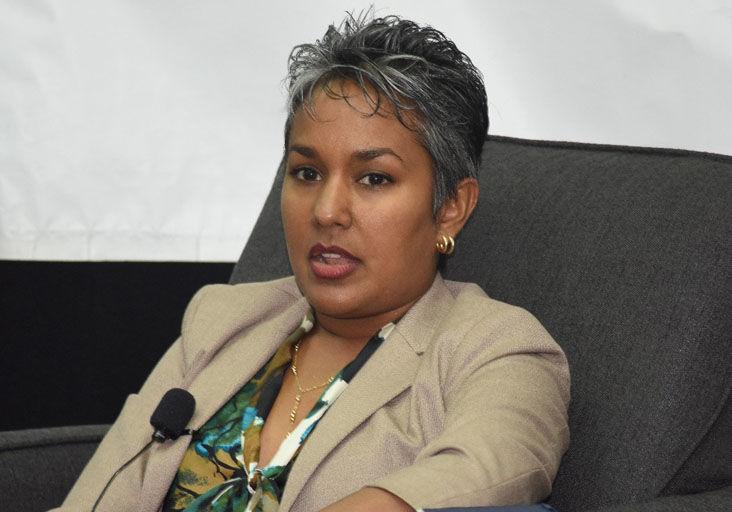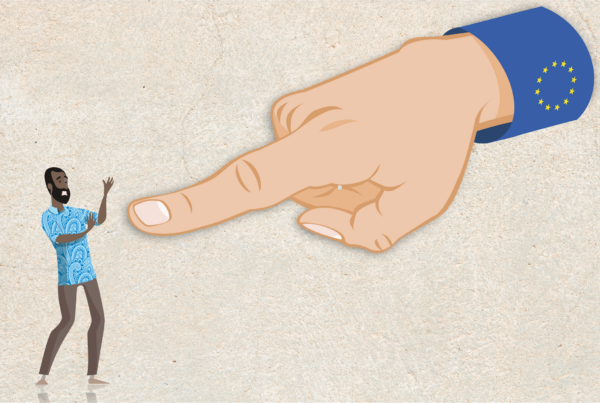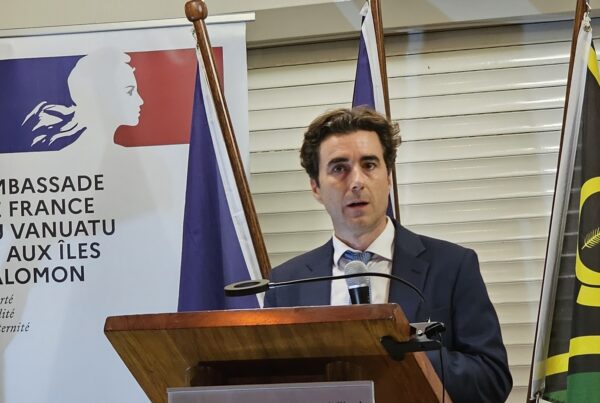By Marla Dukharan
While slavery was abolished in the British Empire in 1833, it was not until 1904 that blackbirding—the heinous practice of enslaving and exporting South Pacific islanders to the cotton and sugar plantations in other colonies—was brought to an end.
The Republic of Vanuatu is a recently-graduated Least Developed Country and small island developing state, with a 2019 GDP per capita estimated at less than US$3,000—the 30th lowest in the world, right below Haiti. Vanuatu is only slightly larger than Jamaica when aggregated, and the almost entirely indigenous population of 308,000 is slightly larger than Barbados.
Sitting in the middle of the “Pacific Ring of Fire’’ and directly in the centre of the Pacific cyclone belt, Vanuatu is the number one most at-risk country for natural disasters in the world.
Vanuatu imposes a VAT and import tariffs, but no corporate or personal income tax, and tax administration is considered to be weak—likely based on the chronic institutional deficiencies characteristic of extractive colonies.
As of 2019, Vanuatu has been classified as “Partially Compliant” by the OECD (which is the global tax authority), and does not appear on Tax Justice Network’s corporate tax haven index. As of June 2018, the FATF (the only globally recognised money laundering and terrorism financing (AML/CFT) watchdog) lists Vanuatu as “no longer subject to the FATF’s monitoring process.” Furthermore, in March 2021, the UK published its list of “high-risk third countries” and did NOT include Vanuatu.
Enter the European Union (EU), which has appointed itself the god of taxes, and the god of AML/CFT. The EU published its first tax blacklist in December 2017. Vanuatu was placed on the EU’s tax ‘greylist’ in January 2018, and blacklisted in March 2019, where it remains today. The EU also published its first AML/CFT blacklist in September 2016 including Vanuatu, where it also remains today. Vanuatu and Trinidad and Tobago are the only countries which are blacklisted twice by the EU.
It is quite the bureaucratic and statistical feat, that the EU managed to concoct and execute a blacklisting methodology so complex, so sophisticated, so precise, and ultimately so effective in achieving their true (unstated but obvious) intent, that it managed to produce not one, but two blacklists, where not one single country is predominantly white, and where not one single country is a significant ally of powerful, predominantly-white countries.
Furthermore, the EU’s farcical methodology for its tax blacklist makes the ultimate omission—actual tax havens. EU Members of Parliament lamented that jurisdictions currently on the EU tax haven blacklist account for less than two per cent of worldwide tax revenue losses and only 1.1 per cent of global economic activity, while EU countries themselves are responsible for 36 per cent of tax havens, and are never blacklisted, which directly contravenes the EU’s own doctrine of proportionality.
There is no international body or treaty that gives the EU the legal or even moral authority to unilaterally impose separate requirements over and above the OECD and FATF, or to impose sanctions—blacklisting or otherwise—on any EU non-member country. The EU’s blacklists should therefore be considered extra-judicial in nature.
The extent of the EU’s overreach into Vanuatu’s sovereignty, and the OECD and FATF’s territory, its grossly disproportionate treatment of one of the smallest, poorest, and most vulnerable countries on earth, its shamefully discriminatory stance based on size and ethnicity, its weaponisation of its selectively applied standards, and ultimately, its unapologetic immorality and de facto subjugation of the people of Vanuatu, is totally unacceptable.
Beyond the near-irreversible reputational damage caused by blacklisting, international Banks are compelled to “de-risk” banks from all blacklisted jurisdictions by withdrawing or reducing correspondent banking services, and in many cases, even physically exiting these jurisdictions. This places a knee on the carotid artery of Vanuatu, with socio-economic consequences that no small, poor, and highly vulnerable country can survive, especially in this pandemic.
Assuming that the goal of blacklisting is to reduce money laundering, terrorism financing, and tax evasion in the first place, blacklisting—especially where institutions are already weak and where informality and cash usage are high—is grossly counterproductive, as it leads to de-risking, which drives even higher levels of informality and cash usage, even for cross border transactions. No other form of payment is more conducive to money laundering and tax evasion than cash.
The EU’s blacklists represent indisputable examples of institutional racism and bullying. We, the former European colonies, are being held to higher standards than our former colonisers, BY our former colonisers. In the context of a global pandemic and #BlackLivesMatter—when it is finally politically incorrect to behave in such a brutal, neo-colonial manner—we demand that the EU cease and desist from its economic warfare, dressed up as its (totally unjustified) blacklisting of Vanuatu.





